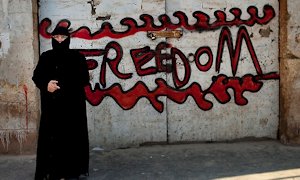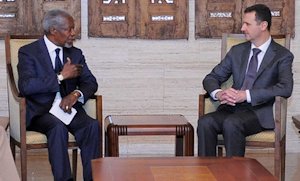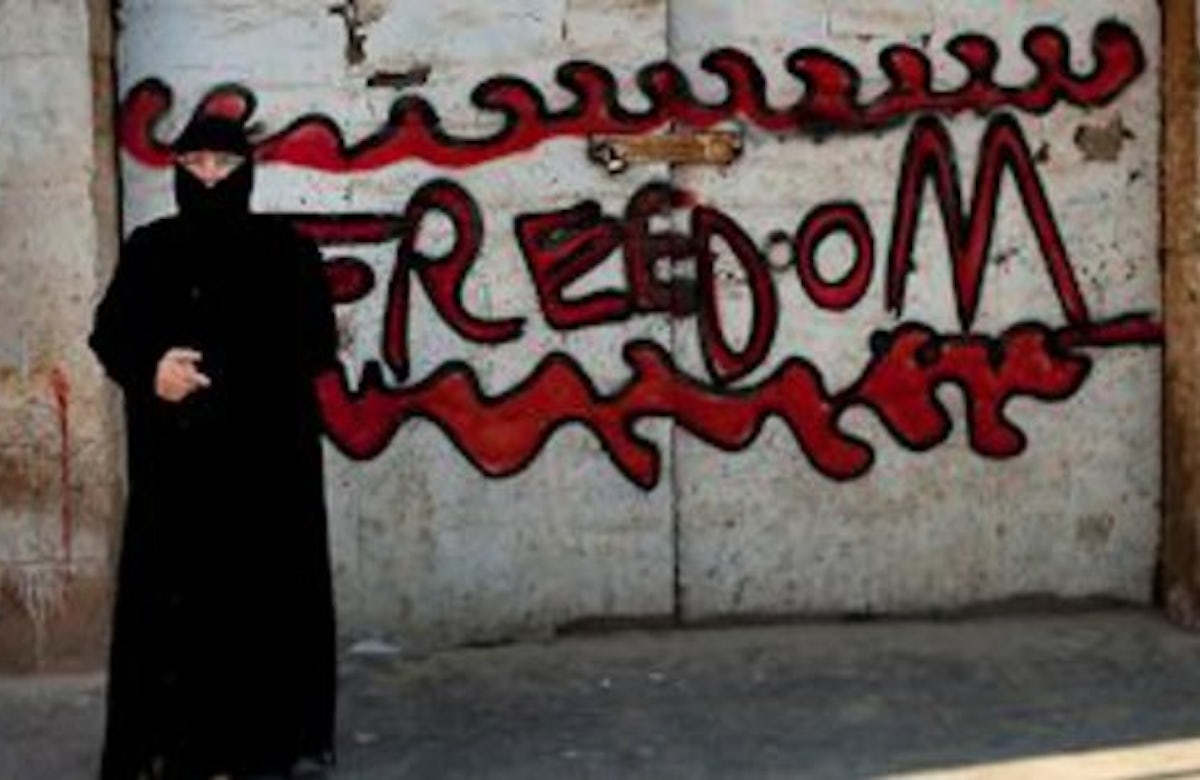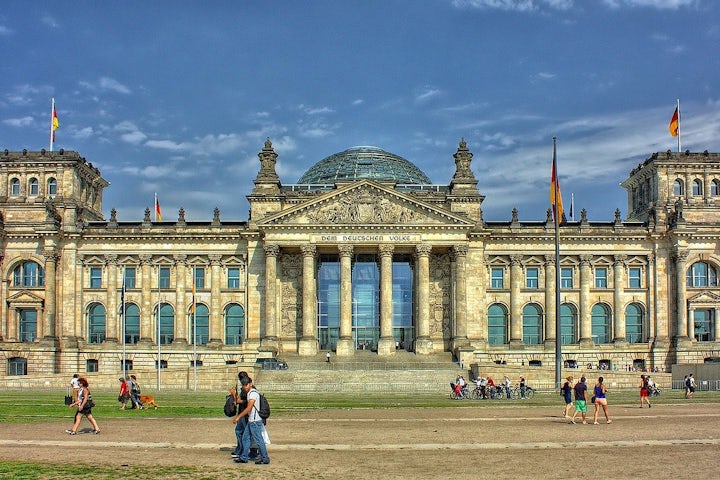By Pinhas Inbari
Over the past few decades, Lebanon has been the go-to place for internal struggles between Arab states. Arab nations would use their proxies in Lebanon in order to underscore a point in a larger confrontation with their neighboring states. When Syria and Saudi Arabia sought to avoid all-out war, the two rivals sent their representatives to fight in Lebanon, at that country’s expense, instead of sacrificing their home soil.
Thus, the Lebanese civil war saw Palestinians, Amal Shiites and Christians fight on Syria’s behalf, and Fatah-affiliated Palestinians, Sunnis and Christians do Saudi Arabia’s bidding.
Later, after Iran gathered momentum, Hezbollah won the day in Lebanon. Today, it is Syria that finds itself at the forefront of regional power struggles. However, unlike the conflicts in Lebanon, which were intended to preserve the status quo in the region, the multi-pronged struggle in Syria centers around the conflicting ideas of altering the situation in the war-torn country.
 Many regional and external actors are involved in the Syrian tragedy. On the one side is President Assad’s bloody regime propped up by Syria’s traditional allies – Iran, Russia, and China. The rebels are supported by the United States, Turkey, Saudi Arabia, Qatar, the United Arab Emirates and Europe, led by France. However, the rebels’ impressive list of backers should not mislead us into thinking that it gives them the advantage. Whereas Assad’s supporters are fewer, they form a more coherent and united block, compared with the rebels’ backers, who are split with regard to their vision of future Syria.
Many regional and external actors are involved in the Syrian tragedy. On the one side is President Assad’s bloody regime propped up by Syria’s traditional allies – Iran, Russia, and China. The rebels are supported by the United States, Turkey, Saudi Arabia, Qatar, the United Arab Emirates and Europe, led by France. However, the rebels’ impressive list of backers should not mislead us into thinking that it gives them the advantage. Whereas Assad’s supporters are fewer, they form a more coherent and united block, compared with the rebels’ backers, who are split with regard to their vision of future Syria.
The United States, Turkey and Qatar wish that the Muslim Brotherhood control post-Assad Syria. That is the reason why the body meant to lead the opposition – the Syrian National Council (SNC) – operates out of Turkey and is completely under the control of the Muslim Brotherhood. France, on the other hand, is not enthusiastic about the prospect of the Brotherhood and prefers to promote the secular Syrian leadership that has long since found refuge in Paris. The former head of the SNC, Sorbonne Professor Burhan Galioun, a left-leaning Arab nationalist, recently lost his patron, President Nicolas Sarkozy, and Turkey and the United States have since had an easier time isolating him and nominating a Kurdish exile, Abd al-Baset Seedah, in his stead.
Saudi Arabia, who, like France, dislikes the Muslim Brotherhood, would rather promote the Salafists, who are close to al-Qaeda. While the rush to promote the Muslim Brotherhood in Syria is coming out of Turkey, the Saudis have been pushing the Salafists onto Syria from Lebanon. France has also tried to bolster its position in the region by giving shelter to Manaf Tlass, so far the most meaningful defector from Assad’s ranks.
Astonishingly, none of the powers vying for regime change in Syria actually envisage a dramatic improvement over the government of Bashar al-Assad. Muslim Brotherhood rule in Syria will most likely result in the creation of a state akin to Sudan, or, at best, Tunisia. A Salafist takeover would produce the horrifying prospects of a new Afghanistan in the heart of the Levant.
The suggestion from former UN Secretary General Kofi Annan, who proposed leaving the current Syrian regime in place and simply removing Assad himself from the equation, is troubling because such a plan would leave Iran’s deep infiltration into Syria intact. In light of these possibilities, it is not surprising that Russia is suggestingthat the world stick to the devil it knows.
Yet what is even more troubling is the fact that actual viable candidates to lead Syria are ignored by rivaling powers. Candidates include the Kurds of the Kurdistan National Assembly of Syria led by Sherkoh Abbas and a Sunni leader, Farid Ghadri, the head of the US-based Reform Party of Syria.
They share the vision of a decentralized government in Syria that would guarantee the safety of individual citizens and minorities in the framework of a federation that would also guarantee the coherence of government, while preserving autonomy for minorities and religious communities.
 This plan was at the core of the dispute in the latest Cairo meeting of Syrian opposition groups. When Sherkoh and his colleagues observed that the prospects discussed were mere copies of yet another centralized government, either under the Muslim Brotherhood banner or the leadership of Arab nationalists like Manaf Tlass, they blew up the meeting.
This plan was at the core of the dispute in the latest Cairo meeting of Syrian opposition groups. When Sherkoh and his colleagues observed that the prospects discussed were mere copies of yet another centralized government, either under the Muslim Brotherhood banner or the leadership of Arab nationalists like Manaf Tlass, they blew up the meeting.
The distorted vision of post-Assad Syria is best exemplified by the Western elevation of Tlass – the former commander of the despised Republican Guards whose sole duty has been to protect Assad and his regime. What is more, Tlass’ chances of being accepted into the ranks of the opposition are close to nil, not only due to his professional history, but also to his provenance. The name Manaf is known as a pagan, pre-Islamic designation, which immediately raises a red flag with the Muslim Brotherhood.
It is less important to see whether Manaf Tlass is accepted by the Syrian rebels. What is more puzzling, is the West’s rejection of parties that envision a better future for Syria in favor of the likes of Tlass and the Muslim Brotherhood, who are more than likely to perpetuate either a nationalist or an Islamist despotic regime in Syria.






